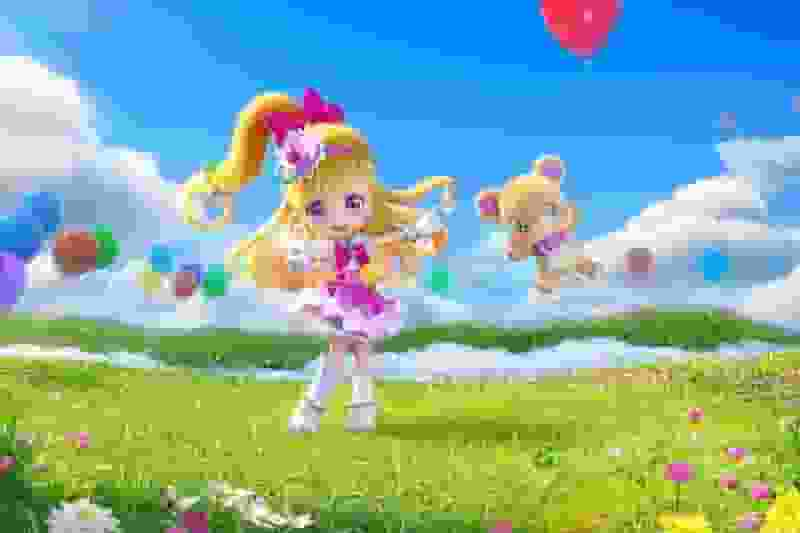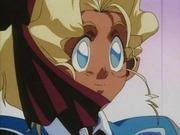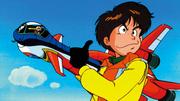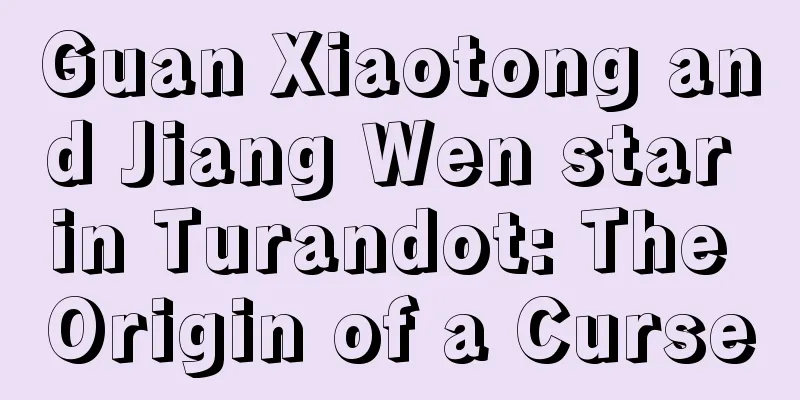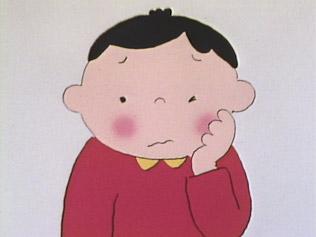The appeal and evaluation of the mischievous god story Korokoro Poron: A must-read review for fans

Ochame Kami Monogatari Korokoro Poron - Looking back on nostalgic comedy animeAmong the many masterpieces born in the world of Japanese animation in the 1980s, one that particularly captured the hearts of children was "Ochame Kami Monogatari Korokoro Poron." Based on the original work by Azuma Hideo, this TV anime series aired on Fuji TV from May 8, 1982 to March 26, 1983. With a total of 46 episodes, each 30 minutes long, it provided many laughs and emotions to children at the time. In this article, we will take a deeper look at this nostalgic comedy anime, introducing its appeal and background in detail. ■Overview of the work"Korokoro Poron: The Story of the Mischievous Gods" is a comedy anime set in Greek mythology. The main character is Poron, the daughter of the sun god Apollo. She is a bit of a clumsy and mischievous girl, and the story depicts her struggle to become a full-fledged goddess. While Poron helps people in trouble, she also causes all sorts of trouble in Olympus. Her actions have resonated with children and earned her many fans. ■ History of the original work and its anime adaptationThe original work is the manga "Olympus no Poron" by Hideo Azuma. This manga was serialized in "Monthly Princess" (Akita Publishing) and was already completed. However, when it was made into an anime, the title was changed and it started anew as "Ochame Kami Monogatari Korokoro Poron." At the same time as the anime began airing, the manga of the same name was also serialized in "100 Ten Comic" (Futabasha), and both the original work and the anime became popular. This anime was the first production by Kokusai Eigasha after it established its own studio, and was characterized by its musical-style structure with many inserted songs. It was directed by Takao Yotsuji, produced by Kokusai Eigasha and Fuji Television, and the copyright is held by Hideo Azuma and Kokusai Eigasha. ■ StoryPollone is the only daughter of the sun god Apollo, and a mischievous half-goddess. She works hard every day to become a full-fledged goddess, but contrary to her bright and cheerful personality, she also has a clumsy side. Pollone goes on various adventures in Olympus with his friend Eros, the god of love. Eros is self-conscious about his ugly face, and tries to stop Pollone's rampage, but always fails. Pollone's father, Apollo, is a big drinker who always oversleeps, but is depicted showering his love on his beloved daughter Pollone with all his might. ■Cast and crewThe voice actor for Polon was Masako Miura, the voice actor for Eros was Keiko Yamamoto, and the voice actor for Apollon was Akio Nojima (Chiba Shigeru for episodes 13-24). The main staff included original author Hideo Azuma, producer Juzo Tsubota, planning director Yukimasa Ohno, series composer Masaru Yamamoto, music composer Masayuki Yamamoto, sound director Nobuhiro Komatsu, art director Tsutomu Fujita, character designer Toshio Takagi, general director Takao Yotsuji, producers Shigeo Tsubota, Kazumasa Fujiya, and Yukimasa Ohno, and production manager Kazuyuki Kawanishi. The series was produced by Kokusai Eigasha and Fuji Television. The theme songs are "Olympus no Polon" (lyrics, composition, and arrangement: Masayuki Yamamoto, sung by Yoshie Hara) for the opening, and "Feeling like a Goddess" (lyrics: Yu Yamamoto, composition and arrangement: Masayuki Yamamoto, sung by Yoshie Hara) for the ending. The inserted song is "Ne ga akari ondo" (lyrics: Takao Yotsutsuji, composition and arrangement: Masayuki Yamamoto, sung by Mina no Shu (Masako Miura, Keiko Yamamoto, Akio Nojima, Masashi Amemori, Yoko Kawanami)). ■Main CharactersPollone is the only daughter of the sun god Apollo, and a mischievous, half-baked goddess. She works hard every day to become a full-fledged goddess, but despite her bright and cheerful personality, she also has a clumsy side. Eros is the god of love and Pollone's friend, and is self-conscious about his ugly face. He tries to stop Pollone's rampage, but always fails. Apollo is the sun god and Pollone's father, and although he likes to drink and always oversleep, he is depicted as showering his daughter Pollone with love. ■ EpisodeThe 46 episodes in the series are based on Greek mythology. Here are some excerpts:
■The appeal of the workThe greatest appeal of "Ochame Kami Monogatari Korokoro Poron" is its humor and the appeal of its characters. Poron's clumsy and mischievous personality resonates with children and provides laughter. The story is based on Greek mythology, which makes the world of mythology feel familiar to children and also contains educational elements. Furthermore, the musical-style structure, which makes extensive use of inserted songs, keeps viewers from getting bored and doubles the enjoyment. This was also the first film that Kokusai Eigasha produced after establishing their own studio, and you can really feel their enthusiasm for the film. Thanks to the efforts of director Takao Yotsuji and the rest of the staff, a high-quality anime was completed. The voice actors were all popular voice actors of the time, including Masako Miura, Keiko Yamamoto, Akio Nojima, and Shigeru Chiba, and they brought out the best in the characters. ■ Influence of the work"Korokoro Poron, the Mischievous God Story" had a major impact on children in the 1980s. When it was broadcast, Poron became very popular among children, and many related goods were sold. In addition, the story, based on Greek mythology, made children feel closer to the world of mythology, and also had an educational effect. Furthermore, this work attracted attention within the industry as it marked a new start for Kokusai Eigasha. Even today, this work is loved by many fans as a nostalgic comedy anime. Its appeal is being shared with new generations through the release of DVDs and Blu-rays, as well as through online distribution. The character of Poron has also been featured in various media, and her clumsy and mischievous behavior continues to bring laughter to many people. ■ Recommendations and ratings"Ochame Kami Monogatari Korokoro Poron" is a comedy anime that can be enjoyed by both children and adults. Poron's clumsy and mischievous personality resonates with children and provides laughter. The story, based on Greek mythology, also contains educational elements, making the world of mythology more familiar to children. Furthermore, the musical-style structure, which makes extensive use of inserted songs, keeps viewers from getting bored and doubles the enjoyment. This work had a major impact on children in the 1980s and is still loved by many fans today. Its appeal is being shared with new generations through the release of DVDs and Blu-rays, as well as through online distribution. The character of Poron has been featured in a variety of media, and her clumsy and mischievous behavior continues to bring laughter to many people. Therefore, I highly recommend "Ochame Kami Monogatari Korokoro Poron" as a comedy anime that can be enjoyed by both children and adults. You'll be able to laugh at Poron's clumsy and mischievous behavior, experience the world of Greek mythology, and have a great time. |
<<: The appeal and evaluation of "Taian Kichijitsu": A new side of Minna no Uta
>>: The appeal and evaluation of "Makyou Densetsu Acrobunch": A deep review
Recommend
Macko-chan Goes to Town - A detailed review and recommended points of this fascinating anime
Macko-chan Goes to Town - Movie reviews and detai...
World Witches Take Off! - A perfect blend of charming characters and an epic story
World Witches Take Off! - A fascinating new adven...
The domestic animated film "Xiao Qian" is officially adapted from Pu Songling's "Strange Stories from a Chinese Studio"
The movie "A Chinese Odyssey" produced ...
Character images of the animated film "I Want to Cry, I Put on a Cat Mask" released
On April 30, we reported that the theatrical anim...
"P4 Persona 4 the ANIMATION" - a factor of hope
A comprehensive review of "P4 Persona4 the A...
Nippon Ichi announces Disgaea 7 PV2 will be released on January 26, 2023
The second PV of "Disgaea 7", the lates...
"Eight Hundred" has a good reputation overseas, with a Rotten Tomatoes rating of 75% and an iMDb rating of 7.2
Today is the 12th day of the official release of ...
The appeal and evaluation of Hula Capper: A must-read review for anime fans
Hula Kappa: A Story of Kappas Who Love Hula on a ...
The appeal and reviews of "Weekly Shimako": A must-see anime guide
Weekly Shimako - Weekly Shimako ■ Public Media TV...
STRAIT JACKET: A dark fantasy you can't miss
StraightJacket International Version: A battle be...
Benedict Cumberbatch confirms he will not be in Avengers 5, but will be a key character in Avengers 6
Benedict Cumberbatch revealed that he will not pl...
Arctic Moosika - A thorough analysis of the moving story played in the frigid land
Misika of the North Pole - A moving story of jour...
Deep analysis and evaluation of Fafner in the Azure EXODUS Season 2
Fafner in the Azure EXODUS 2nd Cool - Fafner in t...
RWBY Volume 4 Review: New Adventures and Deepening Story
Detailed review and recommendation of RWBY Volume...
Ginkgo Dance: A thorough analysis of the charm and emotion of Minna no Uta
The appeal and evaluation of "Ginkgo Dance&q...
